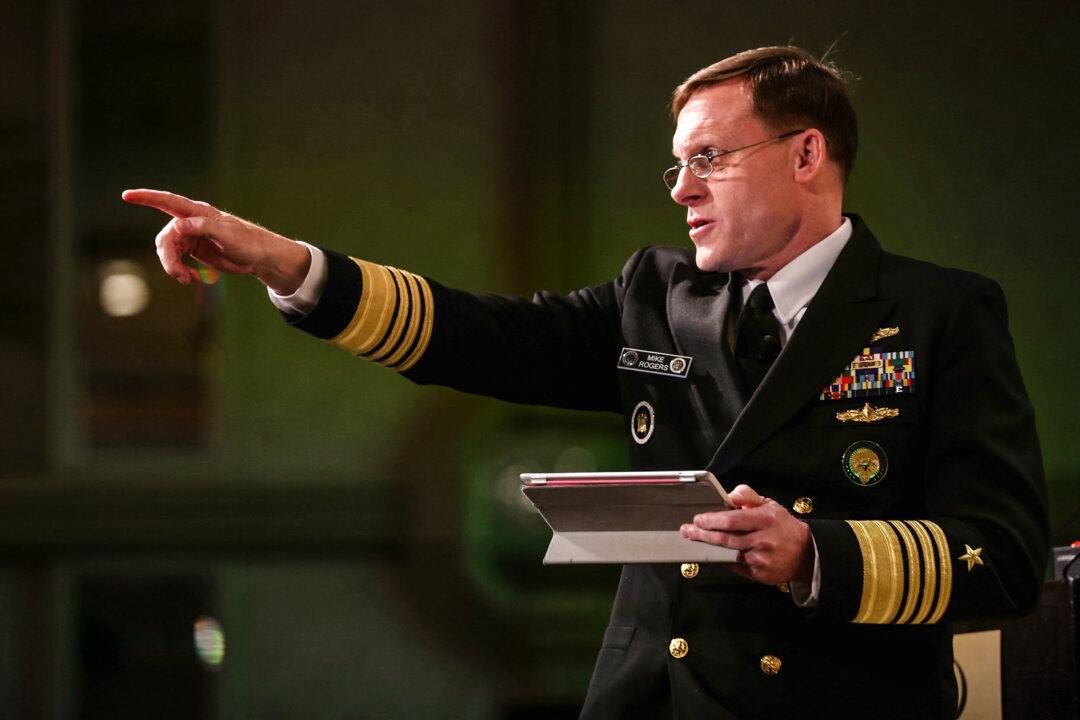The penetration of U.S. airspace by a Chinese spy balloon last week was a significant violation of American sovereignty and part of a larger intelligence collection campaign, according to two retired military leaders.
Retired Navy Adm. Michael Rogers, who previously served as the commander of U.S. Cyber Command and as director of the National Security Agency, said the spy balloon’s incursion into U.S. airspace signified a serious threat to the United States.




